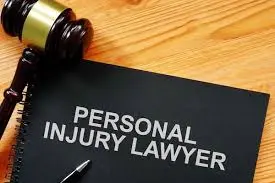
Understanding Personal Injury Claims
Personal injury claims arise when an individual suffers harm due to the negligence or intentional actions of another party. Common examples include car accidents, slip and fall incidents, and medical malpractice. These claims aim to recover damages such as medical expenses, lost wages, pain and suffering, and more.
The Importance of a Trusted Attorney
Navigating a personal injury claim without professional guidance can be risky. Insurance companies often attempt to minimize payouts, and the legal system can be complex. A trusted personal injury attorney brings expertise, negotiation skills, and a deep understanding of the law, ensuring your rights are protected.
Benefits of Hiring a Personal Injury Attorney:
| Benefit | Explanation |
|---|---|
| Legal Expertise | Personal injury attorneys understand the complexities of the legal system, including filing deadlines, required documentation, and court procedures. |
| Negotiation Skills | Attorneys are skilled negotiators who can communicate effectively with insurance companies to ensure you receive fair compensation. |
| Maximized Compensation | With an attorney, you’re more likely to receive a settlement that fully covers your damages, including future medical expenses and lost earning potential. |
| Stress Relief | Handling a claim alone can be overwhelming. An attorney manages all aspects of your case, allowing you to focus on recovery. |
The Personal Injury Claim Process
Understanding the personal injury claim process is essential for anyone considering legal action. Below is a simplified overview:
- Initial Consultation: Your attorney will evaluate the details of your case to determine its viability.
- Investigation: The attorney gathers evidence, including medical records, witness statements, and expert testimony.
- Demand Letter: A demand letter is sent to the at-fault party’s insurance company, outlining the damages and compensation sought.
- Negotiation: The attorney negotiates with the insurance company to reach a fair settlement. If negotiations fail, the case may proceed to trial.
- Settlement or Trial: Most personal injury cases settle out of court, but if necessary, your attorney will represent you in court.
Key Factors Influencing Personal Injury Settlements
| Factor | Impact on Settlement |
|---|---|
| Severity of Injury | More severe injuries typically result in higher compensation due to increased medical expenses and longer recovery times. |
| Liability | If liability is clear, the likelihood of a favorable settlement increases. Shared fault can reduce the compensation awarded. |
| Insurance Policy Limits | The at-fault party’s insurance coverage can cap the maximum settlement amount. |
| Legal Representation | An experienced attorney can significantly influence the outcome by presenting a compelling case. |
Why You Need a Trusted Attorney in Your Corner
Attempting to handle a personal injury claim alone is a daunting task. Insurance companies often use tactics to minimize your compensation, and without the backing of a skilled attorney, you may not receive the full amount you’re entitled to.
Choosing the Right Attorney
Selecting a trusted personal injury attorney is critical. Look for an attorney with a proven track record, strong client testimonials, and a commitment to fighting for justice. Consider the following when making your choice:
- Experience: How many years has the attorney practiced personal injury law?
- Success Rate: What percentage of cases has the attorney successfully settled or won in court?
- Client Reviews: Are previous clients satisfied with the attorney's service and outcomes?
- Fee Structure: Does the attorney work on a contingency basis, meaning they only get paid if you win?
Conclusion
Navigating a personal injury claim can be a complex and emotionally taxing process, but with a trusted attorney in your corner, you can pursue justice confidently. From initial consultation to final settlement, the right attorney will advocate for your rights, ensuring you receive the compensation you deserve. Don’t face the challenges alone—let a professional guide you every step of the way.









